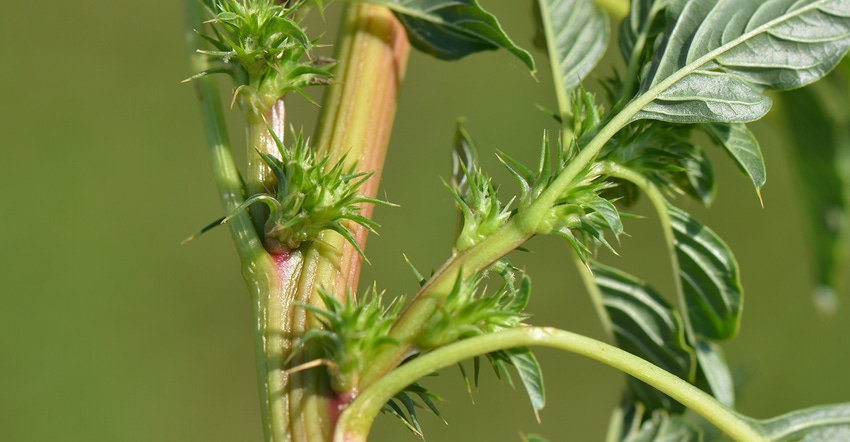September 11, 2018

Palmer amaranth has been positively identified for the first time in North Dakota in McIntosh County.
A farmer showed the suspect plants to a local crop consultant, who then contacted a North Dakota State University weed specialist. The suspect plants have been confirmed as Palmer amaranth through DNA analysis.
Palmer amaranth is a prolific seed producer that can emerge throughout the growing season. It grows rapidly at 2-3 inches per day in optimum conditions, and it is prone to herbicide resistance and multiple modes of action. It is a highly invasive weed that can dramatically cut crop yields.
"Early detection is the key to effectively eradicate or manage this weed," says Doug Goehring, North Dakota agriculture commissioner. "We are thankful it was found and encourage farmers and the public to learn to identify Palmer amaranth in order to react quickly to control the weed."
The public is urged to work with local weed officers, extension agents and other experts to identify and report suspect plants. Palmer amaranth may spread through multiple channels, including: contaminated seed mixes; equipment and machinery movement; animal feed and bedding; and wild birds.
"We do not believe the plants originated from contaminated seed mixes in this case, but believe it may have been introduced by wildlife," Goehring says. "We are working with the North Dakota State Seed Department and NDSU Extension to identify other sources."
More information on Palmer amaranth and other noxious and invasive weeds is available online.
To report a suspect plant, contact the North Dakota Department of Agriculture at 701-328-2250 or North Dakota State University Extension at either 701-231-8157 or 701-857-7677.
Source: NDDA.
You May Also Like




